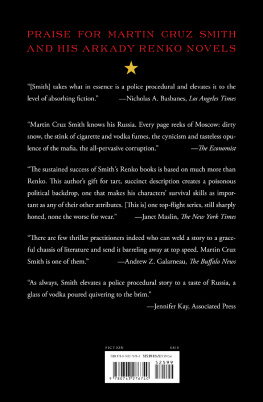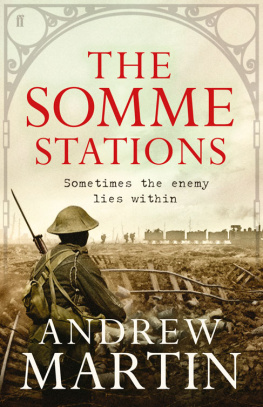Martin Smith - Three Stations
Here you can read online Martin Smith - Three Stations full text of the book (entire story) in english for free. Download pdf and epub, get meaning, cover and reviews about this ebook. genre: Detective and thriller. Description of the work, (preface) as well as reviews are available. Best literature library LitArk.com created for fans of good reading and offers a wide selection of genres:
Romance novel
Science fiction
Adventure
Detective
Science
History
Home and family
Prose
Art
Politics
Computer
Non-fiction
Religion
Business
Children
Humor
Choose a favorite category and find really read worthwhile books. Enjoy immersion in the world of imagination, feel the emotions of the characters or learn something new for yourself, make an fascinating discovery.

- Book:Three Stations
- Author:
- Genre:
- Rating:5 / 5
- Favourites:Add to favourites
- Your mark:
- 100
- 1
- 2
- 3
- 4
- 5
Three Stations: summary, description and annotation
We offer to read an annotation, description, summary or preface (depends on what the author of the book "Three Stations" wrote himself). If you haven't found the necessary information about the book — write in the comments, we will try to find it.
Three Stations — read online for free the complete book (whole text) full work
Below is the text of the book, divided by pages. System saving the place of the last page read, allows you to conveniently read the book "Three Stations" online for free, without having to search again every time where you left off. Put a bookmark, and you can go to the page where you finished reading at any time.
Font size:
Interval:
Bookmark:
Martin Cruz Smith
Three Stations
1
The summer night swam by. Villages, ripening fields, derelict churches flowed and mixed with Maya's dreams.
She tried to stay awake but sometimes her eyelids had their way. Sometimes the girl dreamt of the train's first-class passengers tucked away asleep in their compartments.
Hard class had no compartments. "Hard class" was a dormitory coach where a few lamps were still lit and snoring, muffled sex, body odor and domestic quarrels were shared by all. Some passengers had been on the train for days and the fatigue of close quarters had set in. A round-the-clock card game among oil riggers soured and turned to resentment and accusations. A Gypsy went from berth to berth hawking the same shawls in a whisper. University students traveling on the cheap were deep in the realm of their headphones. A priest brushed cake crumbs from his beard. Most of the passengers were as nondescript as boiled cabbage. An inebriated soldier wandered up and down the corridor.
Still Maya preferred the rough sociability of hard class to traveling first class. Here she fit in. She was fifteen years old, a stick figure in torn jeans and a bomber jacket the texture of cardboard, her hair dyed a fiery red. One canvas bag held her earthly possessions, the other hid her baby girl of three weeks, tightly swaddled and lulled by the rocking of the train. The last thing Maya needed was to be trapped in a compartment under the scrutiny of snobs. Not that she could have afforded first class anyway.
After all, a train was just a communal apartment on rails, Maya decided. She was used to that. Most of the men stripped to warm-up pants, undershirts and slippers for the duration; she watched for any who had not because a shirt with long sleeves might conceal the tattoos of someone sent to bring her back. Playing it safe, she had chosen an otherwise empty berth. She talked to none of the other passengers and none noticed that the baby was on board.
Maya enjoyed creating stories about new people, but now her imagination was caught up with the baby, who was both a stranger and part of herself. The baby was, in fact, the most mysterious person she had ever met. All she knew was that her baby was perfect, translucent, unflawed.
The baby stirred and Maya went to the vestibule at the end of the car. There, half open to the wind and clatter of the train, she nursed the baby and indulged in a cigarette. Maya had been drug-free for seven months.
A full moon kept pace. From the tracks spread a sea of wheat, water tanks, a silhouette of a shipwrecked harvester. Six more hours to Moscow. The baby's eyes regarded her solemnly. Returning the gaze, Maya was so hypnotized that she did not hear the soldier join her in the vestibule until the sliding door closed behind him and he said smoking was bad for the baby. His voice was a jolt, a connection with reality.
He removed the cigarette from her mouth and snapped it out the vestibule window.
Maya took the baby from her breast and covered herself.
The soldier asked if the baby was in the way. He thought it was. So he told Maya to put the baby down. She held on, although he slid his hand inside her jacket and squeezed her breast hard enough to draw milk. His voice cracked when he told her what else he wanted her to do. But first she had to put the baby down. If she didn't, he would throw the baby off the train.
It took a second for Maya to process his words. If she screamed, could anyone hear her? If she fought, would he toss the baby like an unwanted package? She saw it covered with leaves, never to be found. All she knew was that it was her fault. Who was she to have such a beautiful baby?
Before she could put the baby down, the vestibule door opened. A large figure in gray stepped out, gathered the soldier's hair with the grip of a butcher and laid a knife across his neck. It was the babushka who had been suffering the crumbs of the priest. The old woman told the soldier she would geld him next time they met and gave him a vigorous kick as a demonstration of sincerity. He could not get to the next car fast enough.
When Maya and the baby returned to their berth, the babushka brought tea from the samovar and watched over them. Her name was Helena Ivanova but she said that everyone up and down the line called her Auntie Lena.
Worn-out, Maya finally allowed herself to plunge into true sleep, down a dark slope that promised oblivion. When Maya next opened her eyes sunlight flooded the coach. The train was at a platform and the dominant sound was flies circling in the warm air. The fullness in her breasts was urgent. Her wristwatch said 7:05. The train was expected to arrive at six-thirty. There was no sign of Auntie Lena. Both baskets were gone.
Maya rose and walked unsteadily down the corridor. All the other passengers-the boisterous oil riggers, the university boys, the Gypsy and the priest-were gone. Auntie Lena was gone. Maya was the only person on the train.
Maya stepped onto the platform and fought her way through early-morning passengers boarding a train on the opposite side. People stared. A porter let his baggage cart coast into her shin. The ticket takers at the gate didn't remember anyone resembling Auntie Lena and the baby. It was a preposterous question from a ridiculous-looking girl.
People in the platform area were making good-byes and hundreds circulated around kiosks and shops selling cigarettes, CDs and slices of pizza. A thousand more sat in the haze of a waiting room. Some were going to the wilds of Siberia, some all the way to the Pacific and some were just waiting.
But the baby was gone.
2
Victor Orlov stood in a shower stall, his head bowed and his eyes shut while an orderly clad in a surgical mask, goggles, rubber apron and rubber gauntlets poured disinfectant on Victor's head until it dripped from his nose and four-day stubble, ran down his sunken stomach and naked ass and pooled between his feet. He looked like a wet, shivering ape with patches of body hair, black bruises and toenails thick as horn.
The station medic had been called "Swan" for a long time for his long neck. Having been a pickpocket and snitch, he was proud that he had worked his way to a position of responsibility and opportunity.
"I called as soon as Sergeant Orlov came in. I said to myself, call Senior Investigator Renko. He'd want to know."
"You did the right thing," Arkady said.
As the candle burned it released a florid, slightly rotten odor.
"We do what we can. So, is our old friend Victor using anything new, anything besides alcohol? Heroin, methadone, antifreeze?"
"Alcohol. He's from the old school."
"Well, the disinfectant will kill body lice, bacteria, microbes, fungi and spores. That's a bonus. Your friend's insides I can't do anything about. His blood pressure is low, but that's to be expected. His eyes are dilated, but there are no signs of head trauma. He's just detoxing. I gave him Valium and an injection of B1 to calm him down. We should keep him here for observation."
"In a drunk tank?"
"We prefer 'sobriety station.'"
"Not if he can walk." Arkady held up a plastic bag with a change of clothes.
The orderly in the shower stall unreeled a hose and opened it full force. Victor took a step back as water drummed on his chest. The orderly circled him, hosing Victor from every angle.
It was not easy to be arrested for drunkenness. It was difficult to distinguish drunkenness from, say, sharing a bottle with friends, jolly times, sad times, saint's day, women's day, the urge to nap, the need to hold up a wall, the need to piss on the wall. It was hard to stand out as legitimately drunk when the bar was set so high. The consequences, however, could be dire. The fine was insignificant but family and colleagues would be informed-in Victor's case that would be his commander, who had already threatened to drop him a grade. Worse, multiple offenders had to spend two weeks in jail. Policemen did not thrive in jail.
Font size:
Interval:
Bookmark:
Similar books «Three Stations»
Look at similar books to Three Stations. We have selected literature similar in name and meaning in the hope of providing readers with more options to find new, interesting, not yet read works.
Discussion, reviews of the book Three Stations and just readers' own opinions. Leave your comments, write what you think about the work, its meaning or the main characters. Specify what exactly you liked and what you didn't like, and why you think so.








